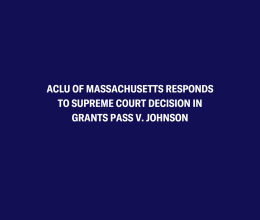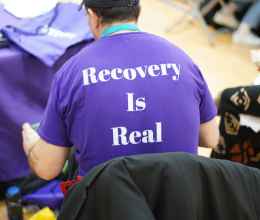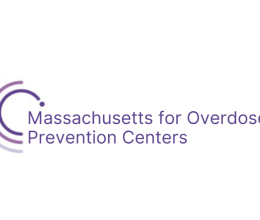
The ACLU of Massachusetts, together with the Committee for Public Counsel Services (CPCS) and Fick & Marx LLP, today called for the dismissal of all drug convictions arising from the Amherst Lab during state chemist Sonja Farak’s tenure.
CPCS – the plaintiff and institutional petitioner on behalf of all persons impacted – and the ACLU of Massachusetts – who is acting on behalf of all persons impacted in Hampden County as well as two other individuals – filed an opening brief with the Massachusetts Supreme Judicial Court (SJC), requesting remedies that would provide relief to thousands of defendants affected by misconduct involving Farak and prosecutors. In addition to calling for a broader range of dismissals than the estimated 8,000 dismissals to which District Attorneys have already agreed, the filing also requests two other remedies: standing orders designed to prevent future scandals and reform the Commonwealth’s handling of wrongful convictions, and monetary sanctions meant to remedy the Massachusetts Attorney General’s Office’s (AGO) misconduct and deter its recurrence.
“Last year, the court established a protocol that led to the dismissal of nearly 22,000 convictions tainted by the misconduct of former state chemist Annie Dookhan,” said Matt Segal, legal director of the ACLU of Massachusetts. “Stronger medicine is needed to address the Amherst Lab crisis, which involves not only the undisputed lab misconduct of former state chemist Sonja Farak, but also the unprecedented attorney misconduct of prosecutors. Together, the remedies we’re requesting can mitigate the harm to defendants, inoculate against further crises, and restore the justice system’s integrity.”
“People have shouldered the burden of these unjust convictions long enough,” said Rebecca Jacobstein, staff attorney with CPCS. “Dismissing these cases will allow people to get jobs and housing, and move forward with their lives.”
For nearly nine years, Farak used drugs that she stole from or manufactured in the Amherst Lab, causing thousands of people to be wrongfully convicted of drug crimes based on unreliable evidence. Her misconduct was not limited to the samples assigned to her; she also tampered with samples assigned to other chemists. Today’s brief argues that the Attorney General repeatedly failed to investigate the impact of this tampering.
Last fall, the ACLU of Massachusetts, CPCS, and Fick & Marx LLP filed a petition urging the SJC to dismiss every single drug case tainted by Farak. The petition called for the dismissal because of misconduct by Farak and also by prosecutors, including former prosecutors with the AGO who, according to a judge’s findings, intentionally deceived a court and defense lawyers about the massive scope of Farak’s misconduct.
The individual petitioners in CPCS v. Attorney General, Hershelle Reaves and Nicole Westcott, were convicted of drug crimes in cases where Farak was the state’s chemist. They are two among thousands of defendants who were denied timely and meaningful opportunities to challenge their convictions as a result of lab and prosecutorial misconduct.
In response to the petition, district attorneys have reportedly agreed to the dismissal of an estimated 8,000 cases in which Farak signed a drug certificate. SJC Justice Frank Gaziano last month held a hearing to determine the next steps in the case, and said he was prepared to sign an order to dismiss those 8,000 cases. CPCS’ and the ACLU of Massachusetts’ new request, concerning the dismissal of all drug convictions involving alleged drug samples processed by the Amherst Lab during Farak’s tenure, would call for the dismissal of perhaps 12,000 additional cases.







